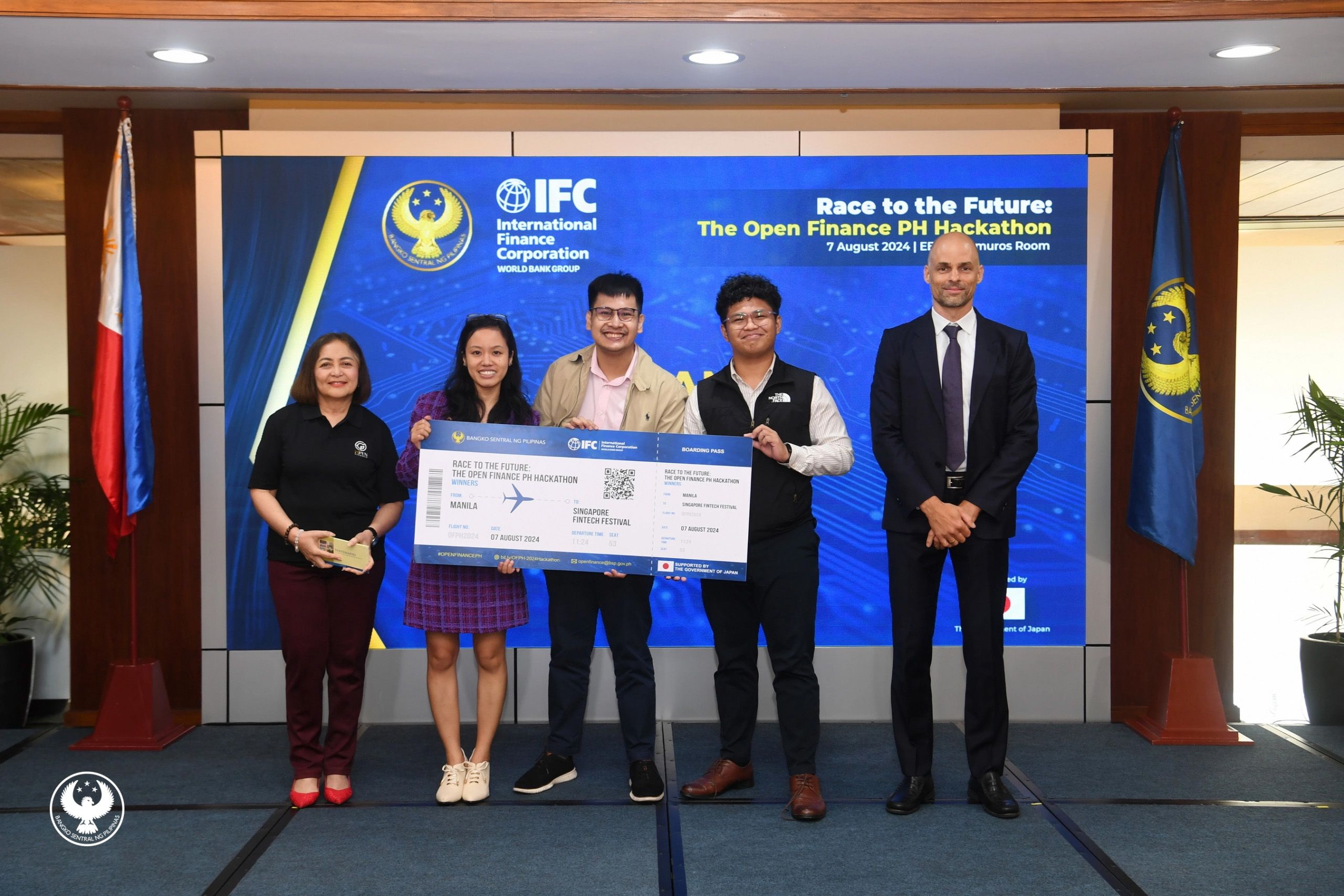The Bangko Sentral ng Pilipinas (BSP) has identified a specific sector of society that will benefit from Open Finance — the retirement industry.
Open Finance is basically the extension of data sharing principles that allows financial customers to have control over their own data. It supports financial inclusion by leveraging on data that consumers agree to share with financial institutions and third-party providers, said the BSP. These data is then used to develop “innovative financial solutions and tailor-fit products and services to their needs.
After concluding its July to August “Open Finance PH Hackathon” last Aug. 7 with the World Bank’s International Finance Corp. (IFC), the BSP said Friday, Aug. 23, that a retirement app that could help Filipinos “plan for a financially secure retirement” is the top proof-of-concept (POC) use case for Open Finance.

The BSP said the hackathon participants developed solutions three use cases, namely: next generation financial management through account aggregation; reducing barriers to micro, small and medium enterprises (MSME) lending; and digital payments innovation.
The hackathon called “Race to the Future” attracted over 150 participants. During the actual event which started on July 15 until Aug. 7, 51 teams attended from banks and non-banks, IT services, financial technology companies, operating payment systems, trust companies, and government offices. About 37 submitted POCs.
The BSP said Team ATRAM composed of Bea Charmelyn T. Lambitco, Jan Franz A. Palngipang, Aaron Lemuel C. Reyes, and Alvin G. Usigan developed a platform called Pensyon PH. The winning app was designed to help end-users achieve a financially secure retirement.
Pensyon PH enables end-users to determine how far in the future a retiree can reach his or her financial goals, said the BSP. “(The app also) provides tailor-fit advice and educational resources on how to best reach their retirement goals and gives customers and employers with a seamless platform for managing their Personal Equity and Retirement Accounts,” it added.
Hackathon finalists also include: “Money PH,” a mobile wallet with functionality for account aggregation by Bank of Philippine Island’s (BPI) BPInnovators team; “ACReS: Alternative Credit Reporting System,” a platform which provides consumer credit ratings based on the financial health of businesses by BPI; “Maxmin,” an app that enables automated risk management in personal finances and identification of financial products; and “Mayani Smart Crop Financing,” a platform for fusing technology and collaborative partnerships.
Other finalists were: “BuxPocket,” an app that integrates multiple accounts and sources to enable cross-platform funding for payments by the UBX team; “OpenNegosyante,” a platform which provides a dashboard for viewing a business’ finances and allows for payments by the UnionBank team; and “Kredo: Credit for All Filipinos,” a platform for a more secure and informed peer-to-peer lending by the Wirefield and City Government of Baguio’s Kredo PH team.
During the event, BSP Deputy Governor Chuchi G. Fonacier said the BSP promotes innovations in the financial system but ensures that customer rights are protected at all times in terms of privacy and data security.
Meanwhile, IFC Country Manager to the Philippines Jean-Marc Arbogast said Open Finance – as displayed by the hackathon participants – are suitable for “interoperable and scalable applications that can address the evolving needs of Filipino consumers.”
In July, the BSP said it will explore uses for Open Finance to further promote financial inclusion by measuring financial health, collecting data on digital payments and its pricing, and giving support to legislative actions to improve internet access in the country.
The BSP is currently developing an index to measure and formulate policy interventions on financial health, as it studies Open Finance use cases that promote financial health such as open savings, insurance, pension, and retirement accounts.
An Open Finance ecosystem also holds immense potential for all sectors, particularly MSMEs because it will promote financial inclusion by helping the unbanked, especially those with little or problematic documentation.
With Open Finance, the small borrowers will be able to build a financial profile and credit history and, over time, access loans and other financial services.
Last year, the BSP launched its PH Open Finance Pilot. The pilot is developing technical and operational standards for an Open Finance ecosystem in the Philippines.
The pilot program is a collaborative project on a voluntary basis to explore the use of application programming interface (API) technologies in the delivery of financial products and services which will be responsive to the needs of customers.
With the completion of the pilot, this puts the Philippines on the map when it comes to Open Finance.
IFC said an Open Finance ecosystem will make the country’s open banking system stronger and at par with more advanced markets such as Singapore, the United Kingdom, and the European Union.
Under the central bank’s rules and based on the 2023-2027 revised Open Finance Roadmap, only eligible BSP-supervised financial institutions will participate in the pilot.
The BSP has been engaging industry collaboration and competition. The IFC has also been advising the BSP for the pilot project. The World Bank, on the other hand, provides technical assistance in building capacity and consensus across concerned government agencies.